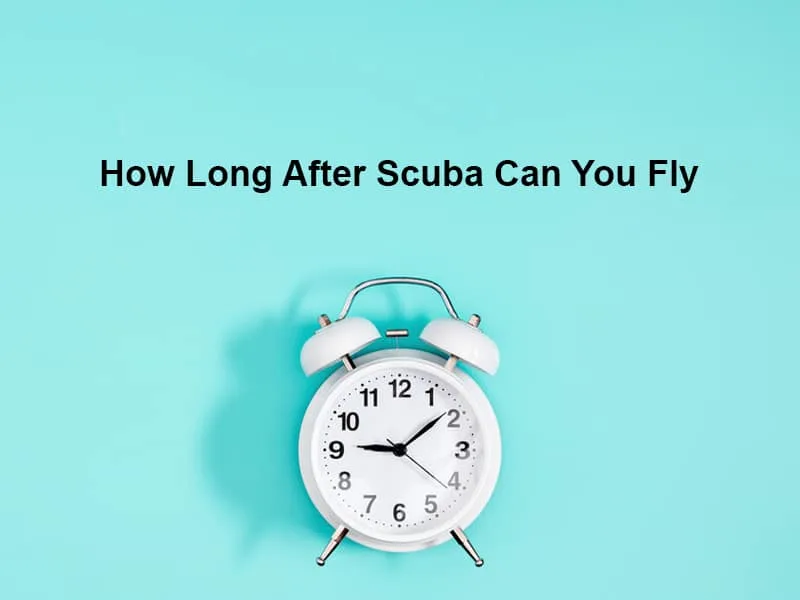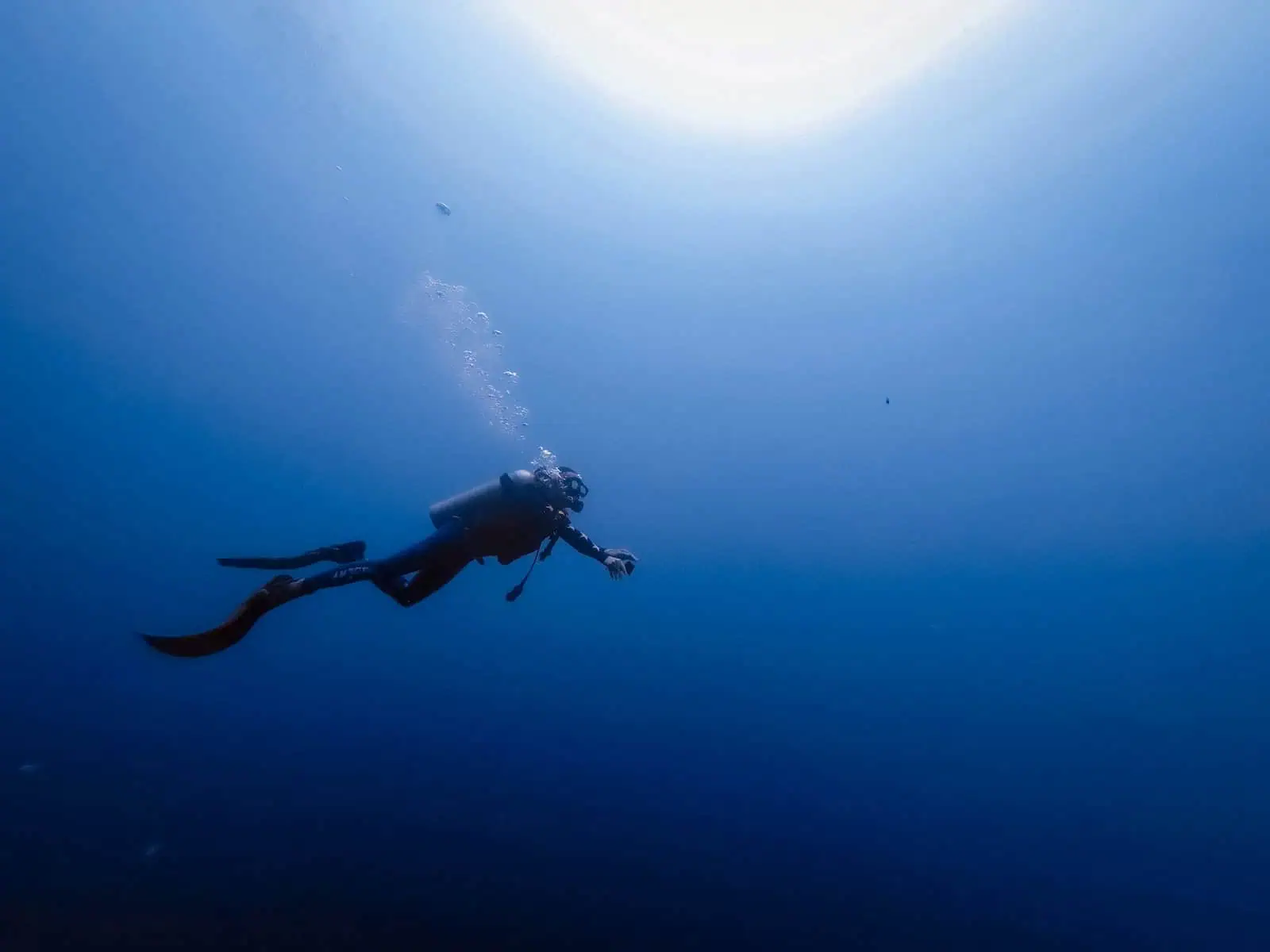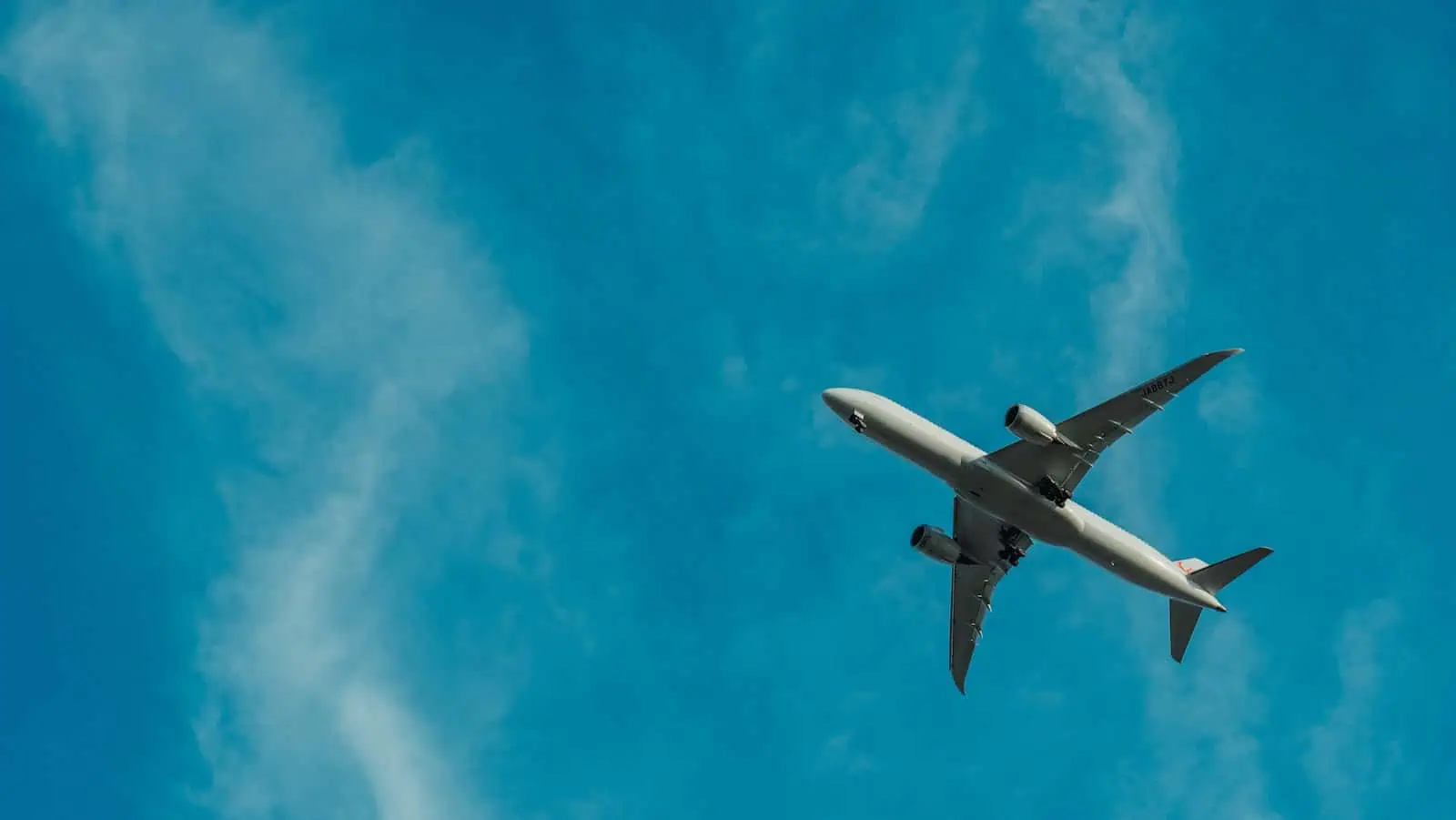Exact Answer:18 Hours
Scuba diving is a water sport and many people are very fond of it, it thrills them, additionally, it’s a different and thrilling experience altogether, the experience can’t be replaced, but right after you get into the water there are several things that you’re supposed to keep in mind after that and even before that.
It is always advised to listen to your instructor very carefully and follow all the advice given. The dos and don’ts of Scuba diving which everyone should be familiar with. One of the most crucial don’ts is to avoid flying. There’s a huge risk in flying if not considered an interval between the dive and getting airborne. It is highly recommended to have an interval of at least 18-24 hours which is standard and recommended universally by all the instructors.

How Long After Scuba Can You Fly
There have been various instances where you need to fly after diving and there is absolutely no danger to life. But anyhow, you need to understand some universal facts of post-diving air activity.
The Undersea Hyperbaric Medical Society (UHMS) has conducted and researched upon the same subject where they understood various types of dives and the interval that should be maintained between diving and flying. The recommendation is not constant and depends completely on two things- the type of dive and DCS.
The type of dive can be explained by the below-given table and the preflight surface interval is also written alongside.
| Dive Profile | Pre-flight surface interval |
| Single dive | 12 hours or more |
| Multiple dives(a day) | 18 hours or more |
| Multiple days (diving) | 18 hours or more |
| Dives with decompression pauses | 24 hours or more |
The single dives with no decompression do not affect much and will need a shorter span of the interval before the flight. But, as the number of dives increases the substantial interval time also increases. Well, the safest figure that you can keep in mind is 18-24 hours post diving to fly.

The second concerning factor is DCS, which is caused by higher concentrations of nitrogen in your bloodstream. Before you dive or fly, you need to make sure that your nitrogen is at standard levels. You have to make sure that your body is hydrated enough to keep up with pressure changes. It is advisable to consume non-alcoholic liquids before diving and flying.
Keeping in mind the major factors you can thus calculate the span between dive and flight and plan your activities accordingly.
Why Should You Wait for At least 18 Hours Before Flying?
The question that comes to mind after understanding the parameters associated with the preflight surface interval is, why should one wait before flying after diving.
The answer is pressure change. The pressure in flight is much lower than the pressure on the ground area. If you straight away head towards flight after diving, your body will experience 3-4 times pressure reduction. This will cause decompression stress to your body. That is why it becomes important that you have off-gassed post diving.
This is a well-studied observation and hence you should always wait according to the set standard or rather more than that before boarding your flight.
It is also observed that post diving air activities contribute to bubble formation in your blood, which is why the time frame has been advised. This bubble formation happens because of the nitrogen concentrations.

During the rapid altitude change, the residual nitrogen remains dissolved in your blood and thus escapes in the form of bubbles. If the pressure is reduced rapidly and your body fails to off-gas, this leads to DCS.
Hence, it is always advisable to make sure that you relax at the ground level surface before going to higher altitudes and also avoid long dives before the flight.
The preflight surface interval time directly depends on the pattern of diving, Single no-decompression dives will have a minor effect on your nitrogen levels whereas long and deep dives will leave more residual nitrogen in your blood.
Conclusion
The concluding part to this question would come as a figure that you should always keep in your mind before planning your dive and flying. The minimum time that one should wait can be said as 18 hours.
The science behind the discussion lies in altitude change and diving patterns. This should be considered to assist you in providing a buffer for unexpected problems, like a loss of cabin pressurization during flight.
You need to plan cautiously for a safe trip and keep in mind all the recommendations given by medical institutes .